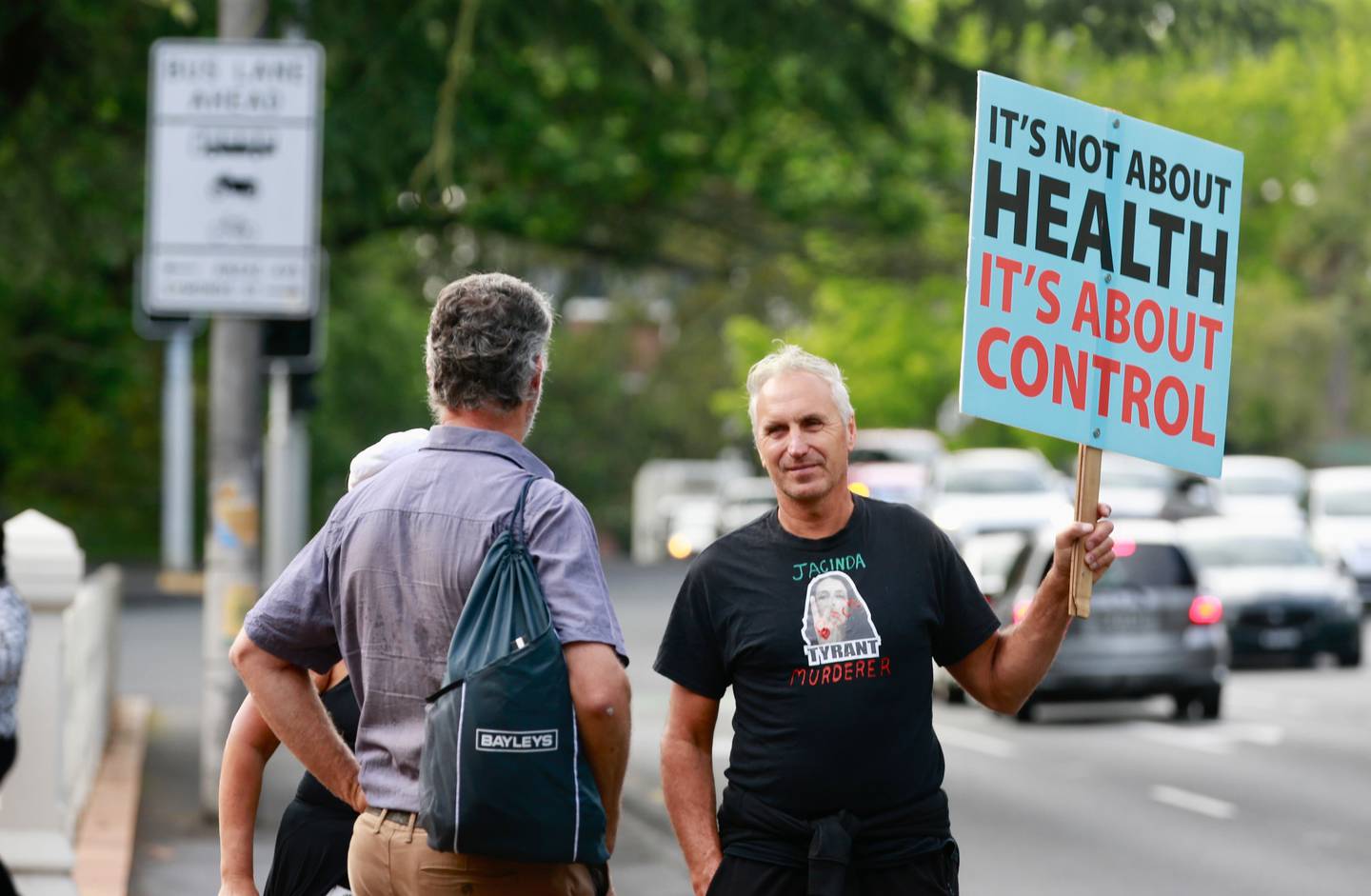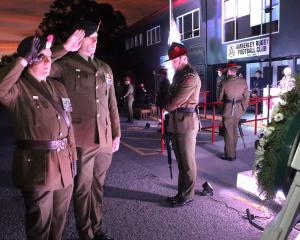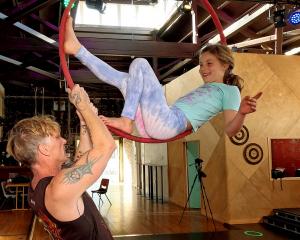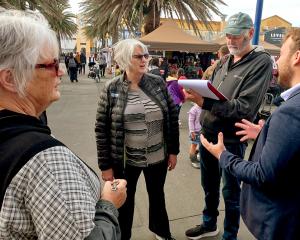Justice Layne Harvey said today’s hearing at the High Court in Auckland was purely administrative to set the date for an urgent hearing.
Representing Te Whatu Ora, lawyer Paul White flagged the urgency of the case saying medical professionals have said the child with such a condition would have been treated several weeks ago in normal circumstances.
The parents’ lawyer, Sue Grey, said the case was unusual and different from other medical guardianship cases where parents are refusing medical care. For this one, she said, the parents want better care than what the state is offering.
There was no legal or other reason why Te Whatu Ora is refusing to consider the parents’ proposal as a solution, Grey said.
“Because they label my clients as conspiracy theorists, [their position] is that anything my clients say can be ignored,” she told the court.
White said Te Whatu Ora’s application to the court is ultimately based on the best interests of the child and what they view as medically safe.
The reason why this case has come to court is because the two parties have reached what he called an impasse, White added.
Justice Harvey set down an urgent hearing for next Tuesday, and encouraged the two parties to continue discussions in the meantime.
Rallies outside court
The baby’s mother told reporters she was doing this because it was her responsibility to do the best for her child.
She said having to deal with a court case was “massive” on top of having to feed twins, she said outside the courtroom.
But she came in person because it was important. “I wanted to see the judge as well, and for the judge to see my baby.”
She said many people have shown support for their case.
“Kiwis are amazing, so many people I don’t know are showing so much love,” she said.

This morning’s show of support came as court documents were filed at the Auckland High Court yesterday, with Health New Zealand/Te Whatu Ora listed as the applicant for proceedings set down for this morning.
The baby’s parents and their supporters filled the small courtroom after waiting over an hour for their case to be called.
The four-month-old at the centre of the case sat in his father’s arms next to his mother.
More supporters were turned away by security officers after the public gallery was filled up and waited outside.
The NZ Herald understands Te Whatu Ora is seeking the guardianship of the four-month-old be shifted from his parents to the courts so consent to use donated blood in the required open-heart surgery can be given.
The New Zealand Blood Service’s website said blood was not divided by whether donors were vaccinated or unvaccinated. It also stated there was no evidence there was any risk in using blood from a vaccinated person.
It was understood an urgent hearing would be sought soon after today’s initial appearance in the High Court.
A supporter of the parents named Kelly said she believed the case shouldn’t be heard.
”It’s appalling, it’s stressful on the parents and on the baby.”
Te Whatu Ora Auckland interim director Dr Mike Shepherd acknowledged it could be worrying when parents had to make decisions about their children’s care.
“The decision to make an application to the court is always made with the best interests of the child in mind and following extensive conversations with whānau,” he said.
He wouldn’t comment further with the matter before the court.
The Herald has sent questions to the baby’s parents through a representative.
Auckland University’s Immunisation Advisory Centre medical director Professor Nikki Turner told Newstalk ZB Covid-19 was widespread in New Zealand and that would be reflected in the nation’s blood.
“Almost all blood in New Zealand will have Covid antibodies in it so unless you’re going to refuse all blood, I can’t imagine how you’ll get round this,” she said.
“The next thing is that Covid antibodies per se are not in any way going to be a problem for the person receiving them, they’re just going to offer the person extra protection against Covid disease.”
Turner couldn’t recall an instance when blood had been deemed ill-suited to be donated because the person had been vaccinated.
“From a scientific point of view, no I can’t think of anything that would make sense at all.
“I think it may be that people confuse the fact that the product in a vaccine is being injected into somebody but it’s not the product in the vaccine that is the response, the response is the body’s response to that [vaccine] that creates the immune response.”
New Zealand Blood Service (NZBS) chose not to comment citing the impending court action.
Associate Health Minister Peeni Henare, also the responsible minister for the NZBS, said in a statement that the “health matter” was between Te Whatu Ora and the child’s whānau, and he said it was inappropriate to comment further as it was before the court.
Requests for comment from Health Minister Andrew Little were referred to Henare’s office. Covid-19 Response Minister Dr Ayesha Verrall could not be contacted for comment.
In an online video, the parents claim they are concerned blood containing a vaccine would be used during the operation needed by the four-month-old, despite their fears reportedly being dismissed by medical professionals and information published by the New Zealand Blood Service.
In the video, the parents were interviewed by former TV newsreader Liz Gunn, who has repeatedly voiced Covid-19 mistruths and was seen earlier this year confronting a news reporter about claims of fainting children at an Auckland vaccination centre - a claim that was rubbished by health officials.
The parents say the child needs open-heart surgery after being diagnosed with “severe pulmonary valve stenosis”.
The New Zealand Heart Foundation described stenosis as when one of the heart’s valves didn’t open properly, meaning pressure and blood could back up and cause strain on the heart.
However, the parents said they didn’t want the surgery to use blood that came from a person vaccinated for Covid-19.
The pair claimed they had more than 20 unvaccinated people who were willing to donate blood, but this had not been approved by the New Zealand Blood Service (NZBS).
The parents, alongside Gunn, reportedly had a meeting with a doctor and a surgeon on the matter and their concerns were dismissed, according to the video.
The video, uploaded on Monday, stated Gunn’s interview was occurring on a Friday and the surgery was supposed to take place on a Tuesday.
The New Zealand Blood Service website featured frequently asked questions relating to blood donation and Covid-19 vaccination that included whether the vaccine was passed on through donation among other points.
The website confirmed any Covid-19 vaccine was “broken down” in the blood soon after injection and would not be transferred to recipients of donations.
“All donated blood also gets filtered during processing, so any trace amounts that may still be present poses no risk to recipients,” it said.
Concerning Covid-19′s spike protein, NZBS said it was present in “vanishingly small quantities” in the blood of some people for the first two weeks after vaccination.
“It is not found in the blood after this time period has passed. There is no evidence that this represents any risk to recipients.”
People who have been vaccinated with certain vaccines were required to delay donations until 28 days after vaccination. However, there was no stand-down period for those who had received the Pfizer vaccine, which had been widely used in New Zealand.
The NZBS website confirmed donated blood was not separated into vaccinated and unvaccinated sources because blood was filtered during processing.
By Adam Pearse, Akula Sharma and Qiuyi Tan













